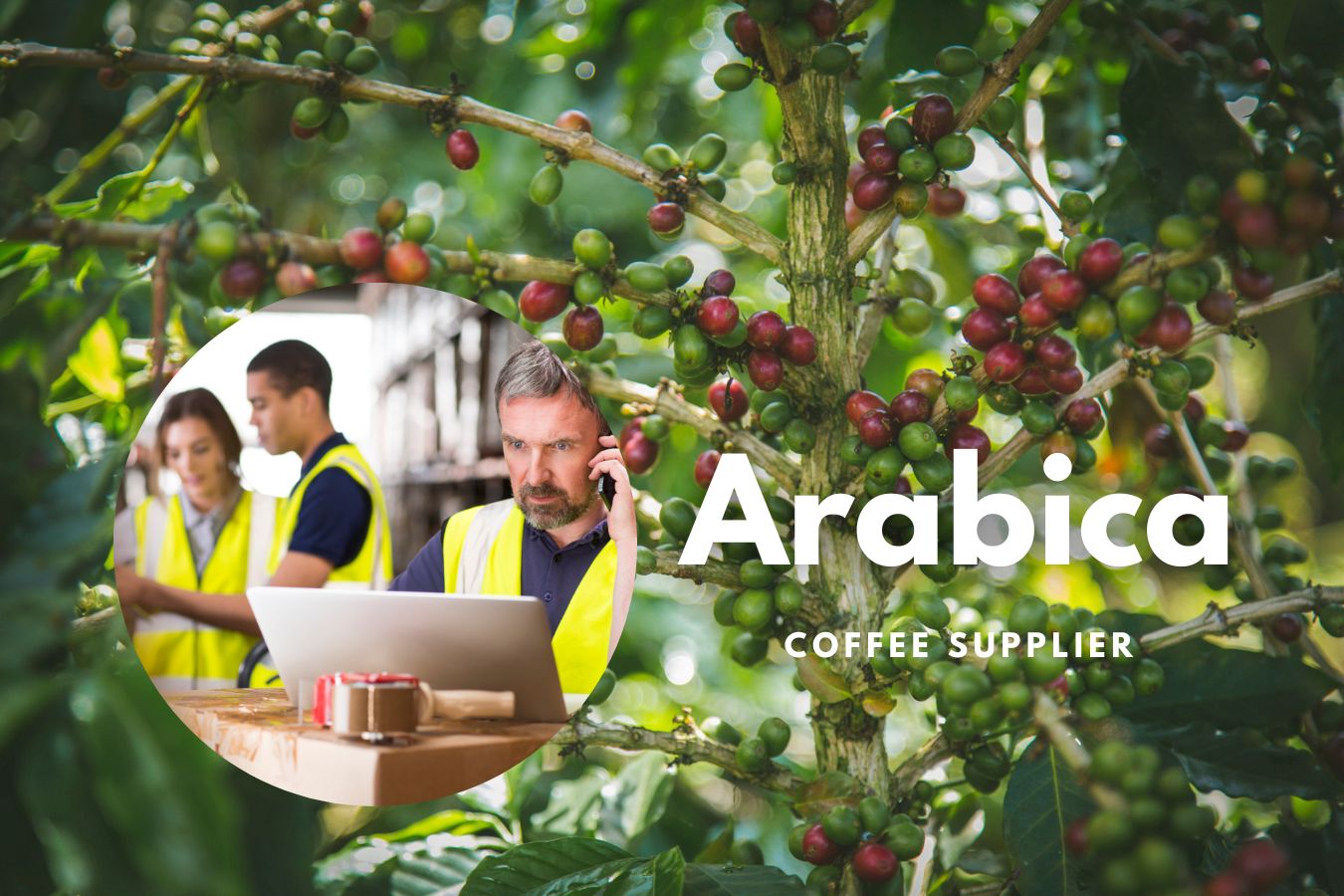
Arabica Coffee Supplier: Arabica coffee is widely regarded as the world’s finest and most popular type of coffee. Known for its smooth and nuanced flavor profile, Arabica beans account for nearly 60% of global coffee production. Sourcing high-quality Arabica coffee beans from a reliable supplier is essential for businesses in the coffee industry, as it ensures a consistent and superior product for customers. This comprehensive guide will provide valuable insights into the world of Arabica coffee, its origins, quality standards, sourcing process, and how to choose a trustworthy supplier.
Vietnam Arabica Coffee Origins
Vietnam, the world’s second-largest coffee producer, is predominantly known for its Robusta coffee. However, the country has made significant strides in Arabica coffee production in recent years, with several regions emerging as major players in the Arabica coffee market.
Brief Overview of Arabica Coffee
Arabica coffee, scientifically known as Coffea arabica, is the most highly prized coffee species due to its complex and diverse flavor. It is grown predominantly in Latin America, Africa, and Asia, thriving in high-altitude regions with fertile soil and mild climates. The Arabica coffee plant is delicate, requiring careful cultivation and maintenance, contributing to its premium status and higher price than other coffee species such as Robusta.
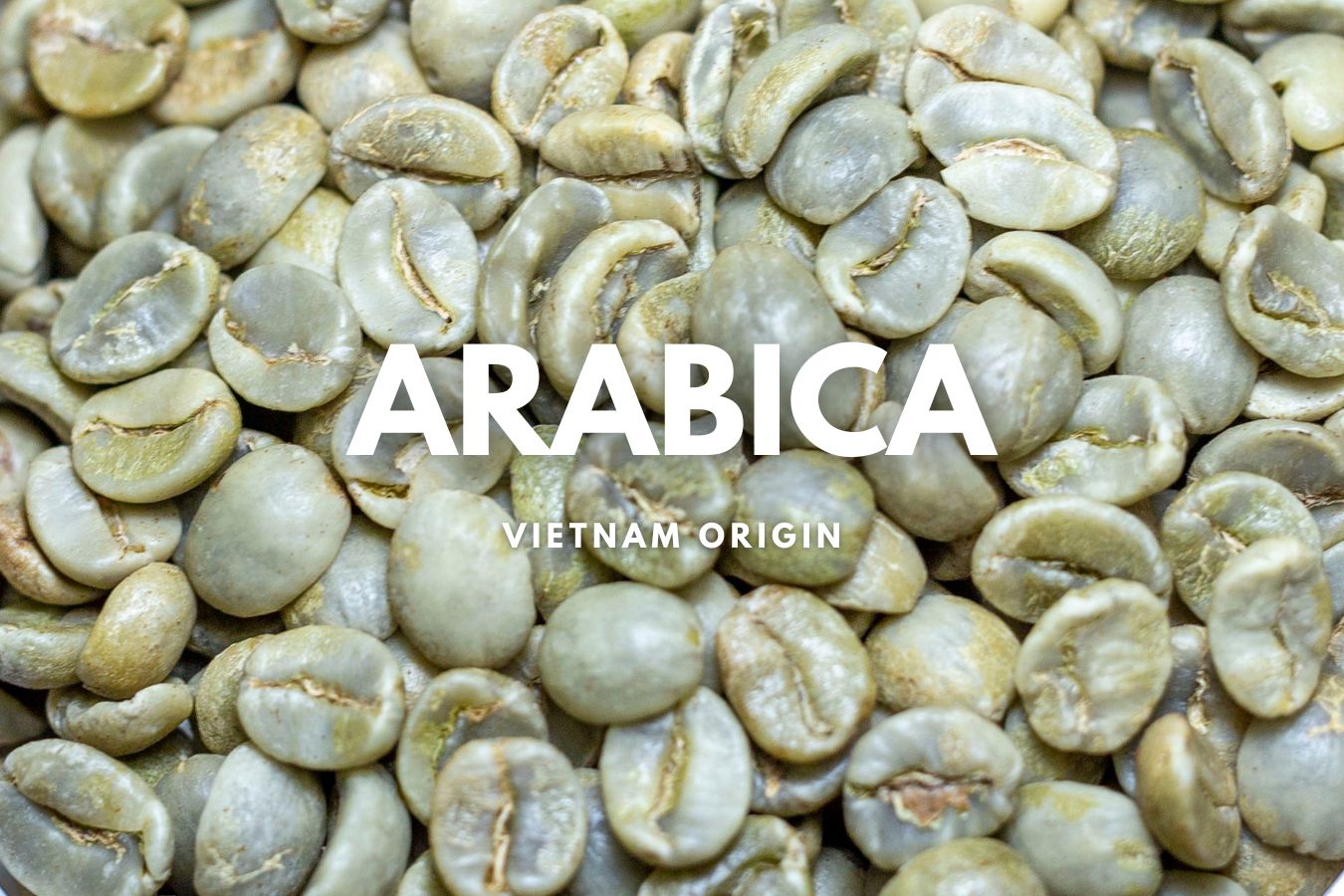
Major Coffee-Producing Regions in Vietnam
- Lam Dong Province (Da Lat): Located in the Central Highlands, Lam Dong Province is home to the picturesque city of Da Lat, which has become synonymous with high-quality Arabica coffee. The region’s cool climate and fertile, volcanic soil create optimal conditions for growing Arabica beans, which thrive at high altitudes.
- Son La Province: In the northwestern part of Vietnam, Son La Province has emerged as another significant Arabica coffee-producing region. The province’s high elevation and temperate climate provide an excellent environment for cultivating premium Arabica beans.
- Cau Dat (Da Lat): The Cau Dat region, located near Da Lat, is another area in Vietnam known for its Arabica coffee production. The high altitude and cool temperatures contribute to the distinctive flavor profile of Cau Dat Arabica beans.
Unique Characteristics of Arabica Beans from Different Regions
Each coffee-producing region in Vietnam imparts unique characteristics to the Arabica beans. These differences in taste and aroma can be attributed to altitude, soil, and climate.
- Lam Dong Province (Da Lat): Arabica beans from Da Lat are known for their bright acidity, floral notes, and fruity flavors, such as berries or stone fruits. The beans often have a medium body and a clean, balanced finish.
- Son La Province: Arabica coffee from Son La typically has a more robust and full-bodied profile with earthy and chocolatey notes. These beans may also exhibit hints of spices or nuts, adding to their complexity.
- Cau Dat (Da Lat): Cau Dat Arabica beans are characterized by their sweet, caramel-like flavors, subtle fruitiness, and smooth, velvety texture. The beans often have a medium to the whole body and a long-lasting, pleasant aftertaste.
By understanding the unique characteristics of Arabica beans from different regions in Vietnam, coffee connoisseurs, and suppliers can better appreciate Vietnamese Arabica coffee’s diverse flavors and aromas.
Quality and Grading Standards for Arabica Coffee
The quality and grading of Arabica coffee beans are essential factors influencing the final product’s overall flavor, aroma, and value. Various elements contribute to the quality of Arabica coffee, and numerous grading systems and certifications are used to classify and rate these beans.
Factors Affecting the Quality of Arabica Coffee
- Altitude: Arabica coffee beans thrive at higher elevations, typically between 1,000 and 2,000 meters above sea level. Higher-altitude beans tend to develop more slowly, resulting in denser beans with more complex flavor profiles and higher acidity levels.
- Climate: Temperature, rainfall, and humidity all play a role in the development and quality of Arabica coffee beans. Cooler temperatures with moderate rain and low humidity are ideal for producing high-quality beans with balanced acidity and distinct flavors.
- Soil: The type of soil in which Arabica coffee plants grow has a significant impact on the quality of the beans. Fertile, well-drained soils with a rich mineral composition, such as volcanic soils, are known to produce beans with more nuanced flavors and higher acidity levels.
- Processing Methods: How coffee beans are processed after harvesting can also affect their quality. Methods like wet, dry, and honey processing can produce different flavor profiles and overall bean quality.
Common Grading Systems and Certifications
- Specialty Coffee Association (SCA): The SCA has established a grading system for Arabica coffee beans based on various factors, including size, shape, color, density, and defects. Beans that score 80 points or higher on a 100-point scale are considered specialty-grade coffee.
- Coffee Quality Institute (CQI) Q Grader Certification: The CQI’s Q Grader Certification program trains and certifies coffee professionals to evaluate the quality of Arabica beans using standardized procedures and scoring methods. Q Graders can identify bean defects and assess acidity, body, flavor, and aftertaste factors.
- Fair Trade Certification: Fair Trade Certified coffee ensures that farmers receive a fair price for their beans and adhere to environmentally sustainable practices. While this certification does not specifically grade the quality of the beans, it often correlates with higher-quality coffee, as farmers have more resources to invest in producing premium beans.
- Organic Certification: Organic-certified Arabica coffee beans are grown without synthetic fertilizers, pesticides, or herbicides, ensuring that the beans are free from harmful chemicals. This certification focuses on farming practices rather than the quality of the beans, but organic coffee often implies a commitment to quality and sustainability.
Understanding the factors affecting Arabica coffee beans’ quality and the various grading systems and certifications can help consumers and suppliers make informed decisions when selecting and purchasing coffee. High-quality Arabica beans can provide an exceptional coffee experience with rich, complex flavors and aromas when sourced and processed correctly.
The Sourcing Process
Sourcing high-quality Arabica coffee beans is crucial for suppliers to ensure they provide their customers with exceptional coffee. The sourcing process involves several stages, from identifying coffee-producing regions and farmers to establishing direct trade relationships and ensuring ethical practices are maintained throughout the supply chain.
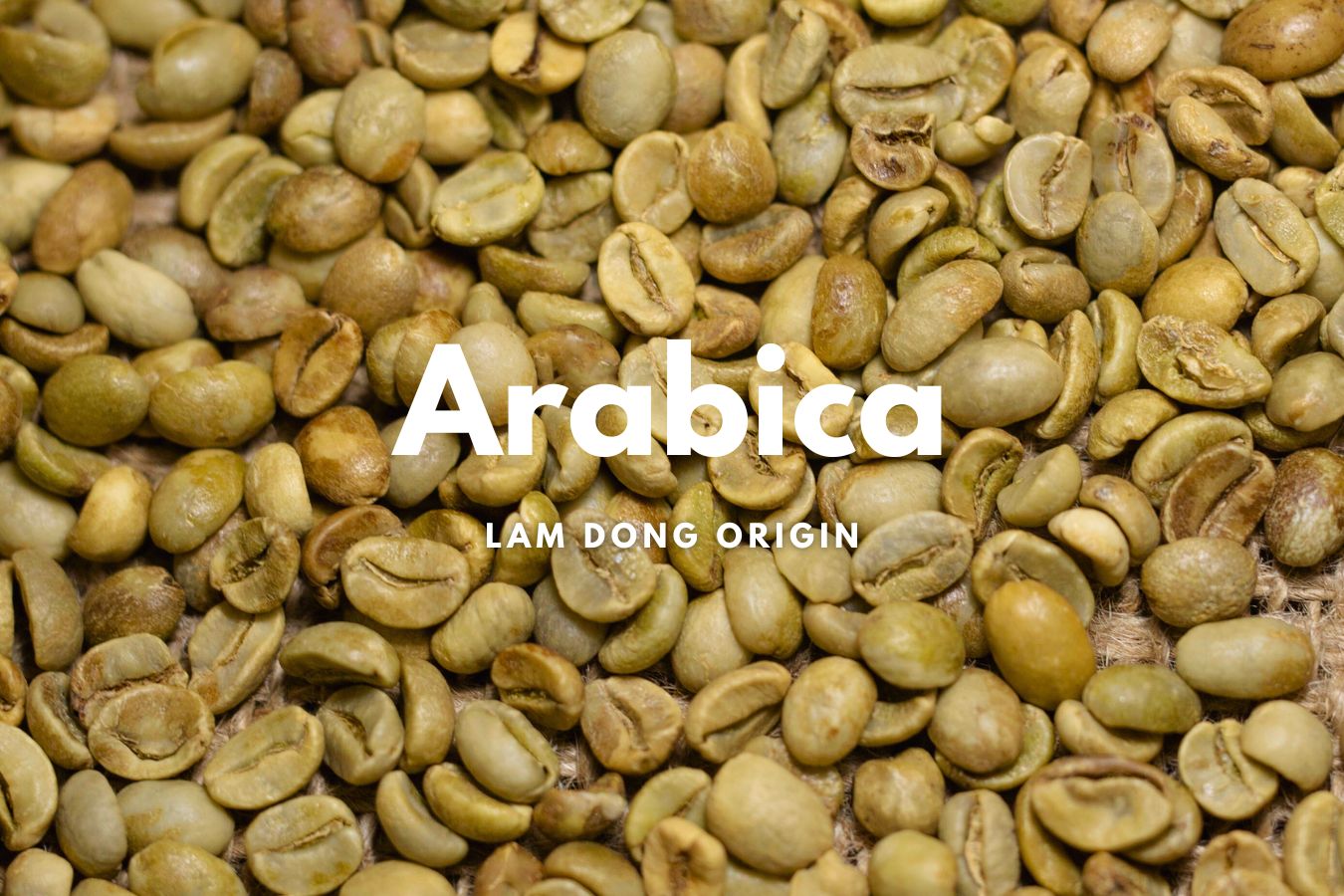
How Arabica Coffee Suppliers Source Their Beans
- Identifying Coffee-Producing Regions: The first step in the sourcing process is identifying the major coffee-producing regions that cultivate Arabica beans. Suppliers often look for areas with optimal growing conditions, such as high altitude, favorable climate, and fertile soil, which contribute to the unique characteristics and flavors of the beans.
- Building Relationships with Farmers: Establishing solid relationships with coffee farmers is essential for Arabica coffee suppliers. By working directly with farmers, suppliers can better understand the production methods, processing techniques, and quality standards practiced on the farms. These relationships also allow suppliers to provide feedback and support, helping farmers to improve their practices and the quality of their beans.
- Farm Visits and Inspections: To ensure the quality and consistency of the beans they source, Arabica coffee suppliers often visit the farms to inspect the cultivation and processing methods. During these visits, suppliers can assess the health of the coffee plants, the harvesting techniques, and the processing facilities. This hands-on approach enables suppliers to decide when to source the beans.
Direct Trade Relationships and Ethical Practices
- Direct Trade: Many Arabica coffee suppliers embrace direct trade relationships with farmers, cutting out intermediaries such as brokers or exporters. This approach gives suppliers more control over the quality of the beans they source while ensuring that farmers receive fair prices for their produce. Direct trade also fosters transparency and traceability, enabling suppliers and customers to know the exact origin of their coffee beans.
- Ethical Practices: Arabica coffee suppliers increasingly focus on ethical practices and sustainability in their sourcing process. This includes adhering to Fair Trade, Rainforest Alliance, or Organic certifications, which promote fair wages, environmental stewardship, and responsible farming practices. By committing to ethical practices, suppliers can ensure the long-term sustainability of the coffee industry and contribute to the well-being of the farmers and the environment.
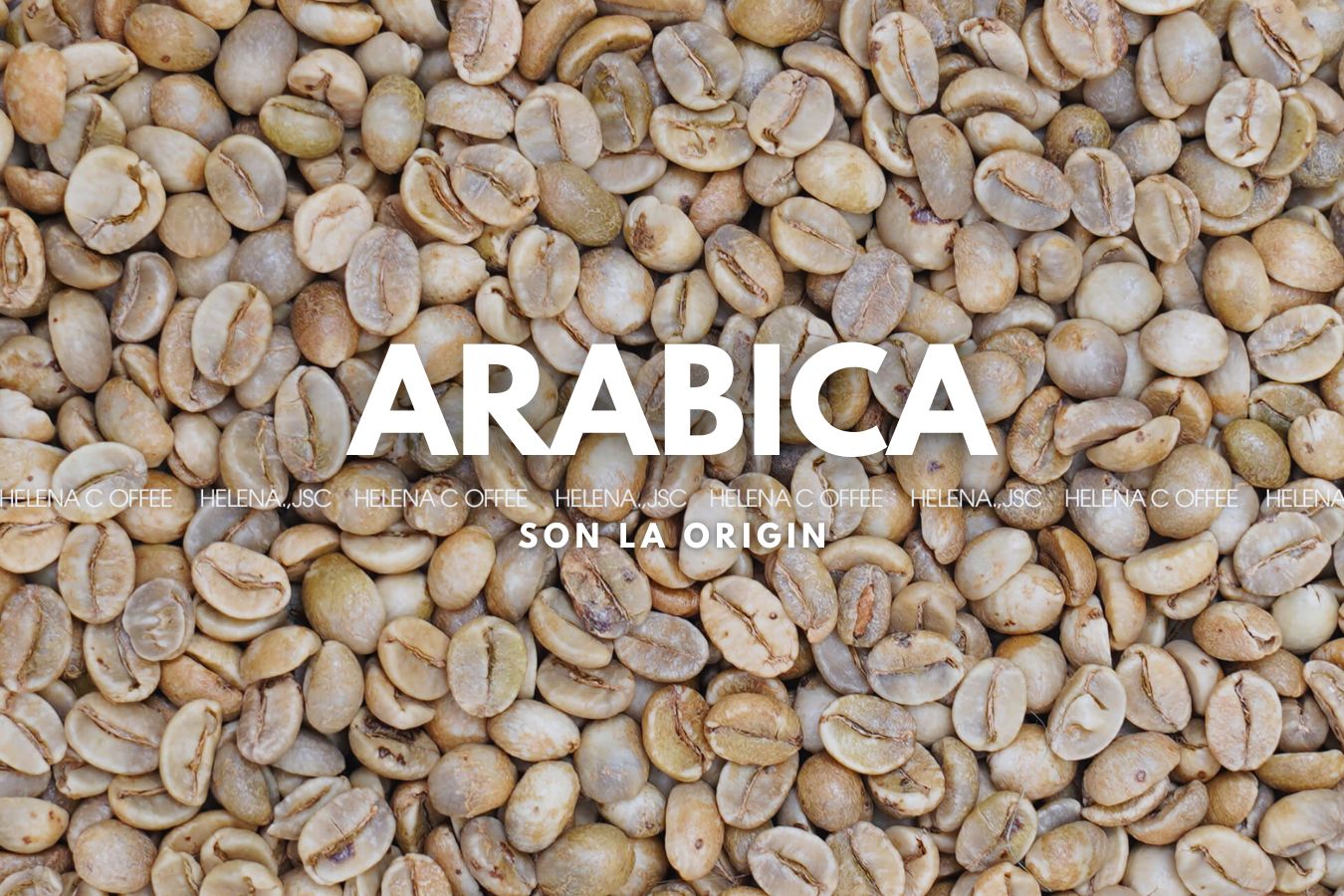
The sourcing process for Arabica coffee suppliers is a critical aspect of their business, as it directly impacts the quality and sustainability of their coffee. By establishing direct trade relationships and committing to ethical practices, suppliers can source premium Arabica beans while supporting the farmers and communities that produce them.
How to Choose a Reliable Arabica Coffee Supplier
Selecting a reliable Arabica coffee supplier is essential for businesses providing their customers with high-quality coffee. Several factors to consider when choosing a supplier include their commitment to quality, ethical practices, transparency, and traceability. By evaluating these factors, businesses can find a supplier that meets their needs and aligns with their values.
Factors to Consider When Selecting a Supplier
- Quality and Consistency: A reliable supplier should prioritize the quality and consistency of their Arabica beans. Look for suppliers with established relationships with farmers and regularly visit the farms to ensure the beans meet their quality standards. It’s also essential to consider the supplier’s grading system and commitment to sourcing beans with specific flavor profiles, aroma, and body.
- Ethical Practices: Ensure that your chosen supplier is committed to ethical practices, such as fair trade, environmental sustainability, and responsible farming. Suppliers who adhere to certifications like Fair Trade, Rainforest Alliance, or Organic demonstrate their commitment to supporting the welfare of coffee farmers and the environment.
- Reputation and Experience: The supplier’s reputation and experience in the industry are also essential factors to consider. Look for suppliers with a proven track record of providing high-quality Arabica beans and positive customer feedback. Additionally, experienced suppliers are likelier to have established relationships with farmers and a deep understanding of the coffee market.
- Customization and Flexibility: A reliable supplier should be able to meet your specific requirements, such as providing customized blends or different processing methods. They should also be flexible in their approach, accommodating changes in order volume or delivery schedules as needed.
The Importance of Transparency and Traceability
Transparency and traceability are crucial in choosing a reliable Arabica coffee supplier. Suppliers who prioritize these aspects offer greater insight into the origin of their beans, the farming practices used, and the overall supply chain.
- Transparent Sourcing: A fine supplier will provide information about the farms they source their beans from, their cultivation methods, and their processing techniques. This information allows businesses to make informed decisions and ensure they are supporting ethical and sustainable practices.
- Traceability: Traceability refers to the ability to track the journey of the coffee beans from the farm to the final product. Suppliers prioritizing traceability assure businesses that they are receiving high-quality, ethically-sourced beans. Traceability also enables companies to share the story of their coffee with customers, adding value and building trust.
In conclusion, selecting a reliable Arabica coffee supplier involves considering factors such as quality, ethical practices, reputation, and customization. Additionally, transparency and traceability are essential for businesses to source high-quality, ethically-produced beans. By evaluating these factors, companies can find a supplier that meets their needs and supports the coffee industry’s long-term sustainability.
Helena Coffee: A Trusted Arabica Coffee Supplier
Helena Coffee is a leading Arabica coffee supplier that provides high-quality, ethically-sourced beans to businesses worldwide. With a solid commitment to supporting sustainable and responsible farming practices, Helena Coffee has established itself as a trusted partner for companies seeking exceptional Arabica coffee beans.
Commitment to Quality and Sustainability
At Helena Coffee, quality and sustainability go hand in hand. The company works closely with coffee farmers, ensuring they follow environmentally friendly cultivation practices and fair labor standards. Helena Coffee greatly emphasizes sourcing beans certified by Fair Trade, Rainforest Alliance, or Organic organizations, reflecting its social and environmental responsibility commitment.
In addition to promoting ethical and sustainable practices, Helena Coffee is dedicated to maintaining the highest quality standards for its beans. The company employs stringent grading systems and quality control measures to ensure that its supplies of Arabica coffee beans meet or exceed industry benchmarks. Helena Coffee also regularly visits the farms they work with, fostering strong relationships with coffee producers and ensuring the beans’ quality and consistency.
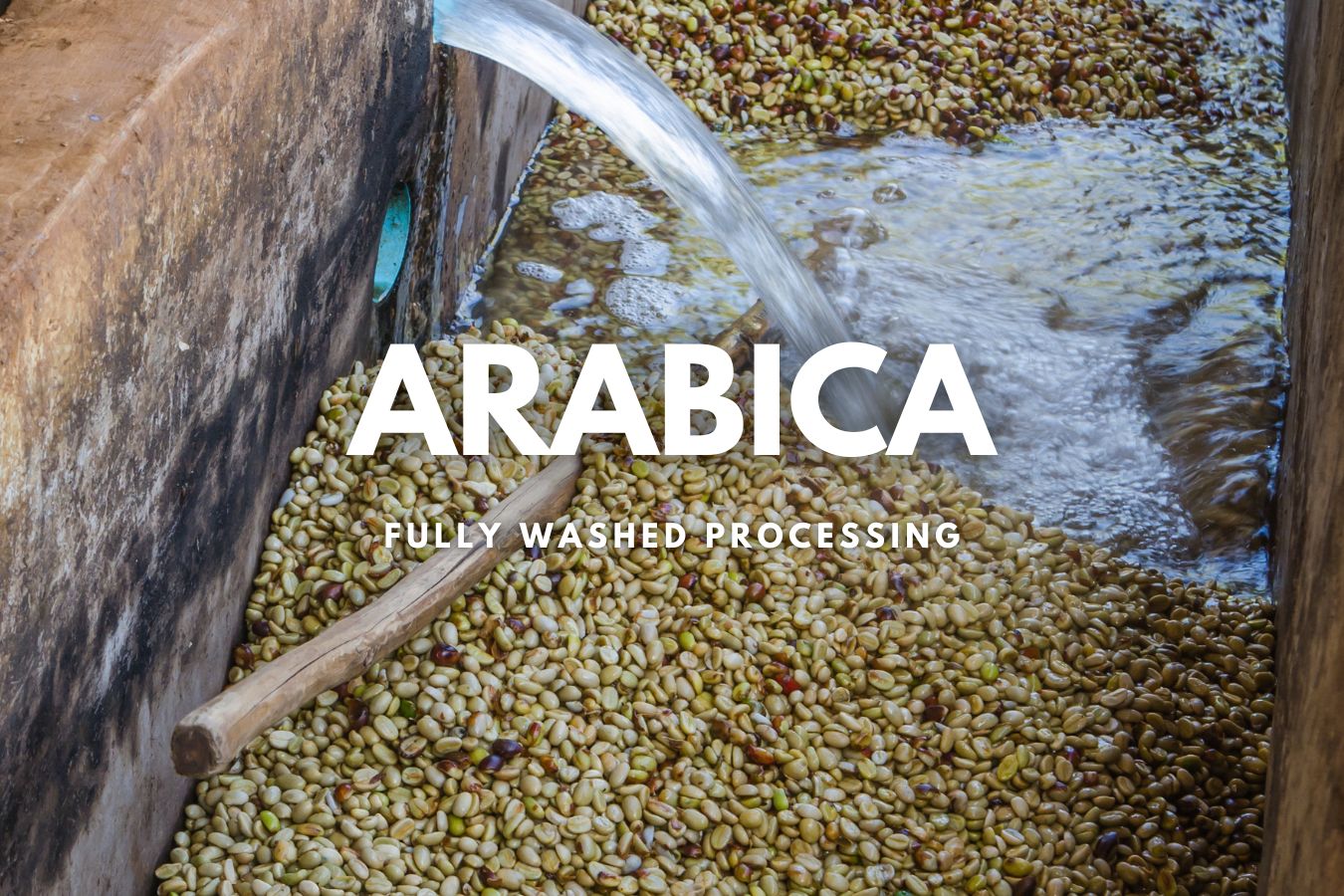
Range of Arabica Coffee Beans Offered
Helena Coffee offers diverse Arabica coffee beans from various coffee-producing regions worldwide. The company takes pride in providing beans with distinct flavor profiles, aromas, and body characteristics that cater to various customer preferences. Some of the Arabica coffee beans offered by Helena Coffee include:
- Single-origin beans: Helena Coffee provides single-origin Arabica beans from renowned coffee-growing regions such as Colombia, Ethiopia, Brazil, and Vietnam. These beans are known for their unique flavor characteristics, reflecting the terroir of their respective areas.
- Blends: For businesses seeking a more balanced flavor profile, Helena Coffee offers expertly crafted blends that combine beans from different origins. These blends are carefully curated to create a harmonious and satisfying taste experience.
- Specialty beans: Helena Coffee also offers a selection of specialty Arabica beans, such as micro-lot and rare varietals. These beans are highly sought after for their exceptional quality and unique flavor.
In conclusion, Helena Coffee, a trusted Arabica coffee supplier, prioritizes quality, sustainability, and customer satisfaction. With a diverse range of Arabica coffee beans and a solid commitment to ethical practices, Helena Coffee is an ideal partner for businesses seeking exceptional coffee products.
Placing an Order and Building a Long-Term Relationship
How to Place an Order with Helena Coffee
Placing an order with Helena Coffee is straightforward to ensure customer satisfaction. To begin, follow these simple steps:
- Contact Helena Coffee: Contact the company’s customer service team via email, phone, or their website contact form. Provide your business details, requirements, and preferences for Arabica coffee beans.
- Receive a tailored offer: Helena Coffee will work with you to understand your needs and provide a customized offer, including bean selection, pricing, and shipping options.
- Finalize the order: Review the offer and, if satisfied, confirm your order by providing the necessary shipping and payment details.
- Shipment and delivery: Helena Coffee will process your order promptly and arrange for shipment, ensuring that your coffee beans arrive fresh and in excellent condition.
Benefits of Establishing a Long-Term Relationship with a Reliable Supplier
Forming a long-term relationship with a reliable Arabica coffee supplier like Helena Coffee offers numerous benefits for your business:
- Consistent quality: A long-term partnership ensures that you receive a constant supply of high-quality Arabica coffee beans, allowing you to maintain the quality of your products and meet customer expectations.
- Customized solutions: As your relationship with Helena Coffee grows, the company will gain a deeper understanding of your unique requirements and preferences, enabling them to provide tailored solutions that cater to your business needs.
- Preferential pricing: Long-term clients often receive preferential pricing or volume discounts, helping you reduce costs and increase profitability.
- Streamlined communication: Developing a long-term relationship with your supplier facilitates more efficient communication, making it easier to address concerns, discuss new products, or negotiate terms.
- Enhanced trust: Trust is crucial in any business relationship, and a long-term partnership with Helena Coffee fosters mutual trust and confidence, ensuring a smooth and successful collaboration.
By placing an order with Helena Coffee and establishing a long-term relationship, your business can benefit from consistent quality, customized solutions, and a reliable partnership that supports your growth and success in the coffee industry.